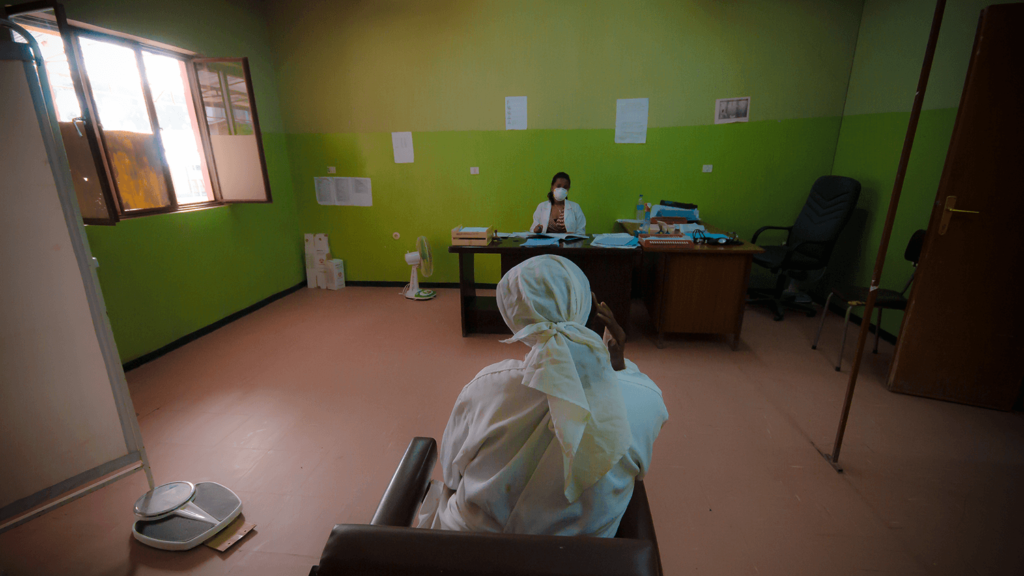Stigma Matters in Ending Tuberculosis
Stigma Matters in Ending Tuberculosis
by Barbara K. Timmons, PhD

Tuberculosis (TB) is the pandemic that won’t go away. This ancient disease, the leading infectious cause of death in the world, kills more than a million people every year. One-third of the world’s population lives with latent TB infection. Despite being a preventable and curable disease, TB has been difficult to eradicate in part because of the stigma around the infection, preventing people from getting tested and continuing treatment.
Ethiopia is among the 30 countries with the highest burden of TB in the world. One TB patient in Eastern Ethiopia, a woman from the small city of Dire Dawa, told researchers from Management Sciences for Health (MSH), “My husband’s family stigmatized me a lot. Since they knew that I am a TB patient, they didn’t sleep in our house. They sleep outdoors. They are not also willing to eat with me. . . . Before I was infected with TB, our social life with other people was great. The social life of Dire Dawa community is well known. But after they knew that I am a TB patient, only one of my neighbors sometimes comes to visit me.”
This rejection and isolation are compounded by the association of TB with HIV. Patients also experience the fear of losing their job or place to live, and even violence or abandonment by partners. Stigma is a social problem—and it requires a social as well as a medical solution, inspired by compassion and reliant on scientific information.
MSH carried out the first national survey about stigma related to TB in Ethiopia, conducted in seven regions and two city administrations, with support from the US Government under the global Challenge TB Project. Nearly 3,500 people participated in this quantitative and qualitative study. Over one-third of them—TB patients, family members, and community members—exhibited significant TB-related stigma, which was associated with lack of education, poverty, and low levels of knowledge about TB.
Most study participants reported that they would seek care at health facilities and disclose their symptoms to doctors, however. This could be due to low HIV-associated TB in rural communities. In focus group discussions, patients affected by TB reported stigma within their households. They indicated that family members were unwilling to share utensils or eat with them—in a society in which sharing food is the norm. More than the stigma from families and the community, internalized stigma by TB patients, which results in feelings of shame and low self-esteem, compromises care-seeking behaviors. Delayed care, in turn, contributes to the continued transmission of TB.
Dr. Muluken Melese, Senior Technical Advisor for TB and HIV/AIDS at MSH, describes strategies used by MSH to decrease TB-related stigma. “We develop information about TB for families, communities, religious leaders, and health workers to dispel myths and misinformation and counter stigma. With funding from the US Government, we helped train journalists and mass media professionals on TB messages designed to reduce stigma, and promote their use for community education through radio and television.” He describes self-stigma to be “as important as stigma from others,” pointing out the need to “counsel both patients and treatment supporters—the friends and family who observe the patient taking their drugs—about the cause, transmission, diagnosis, treatment, and prevention of TB.”
To address self-stigma, Dr. Melese recommends lessons from clubs for people living with HIV. Adapting this intervention, these clubs can serve as support networks for people living with TB and provide a forum for discussing stigma, exchange experiences, and even assist in TB contact screening.
![[A health worker takes a blood sample from an XDR-TB patient at Kitgum Hospital in northern Uganda.] {Photo credit: Diana Tumuhairwe/MSH}](https://msh.org/wp-content/uploads/2020/12/an_xdr-tb_patient_has_his_blood_sample_taken_by_a_health_worker_at_kitgum_hospitals_mdr_tb_treatment_centre._photo_credit_diana_tumuhairwe_817px.png)

![[David Kaliisa, a TB community linkage facilitator in Kawempe, Kampala, checks on Celeb and her daughter. While both received treatment for multi-drug resistant TB, Kaliisa made regular house calls to support their adherence to treatment. Photo Credit: Diana Tumuhairwe/MSH.]](https://msh.org/wp-content/uploads/2019/11/edited_eop_doc_photos_-4721_875px.png)